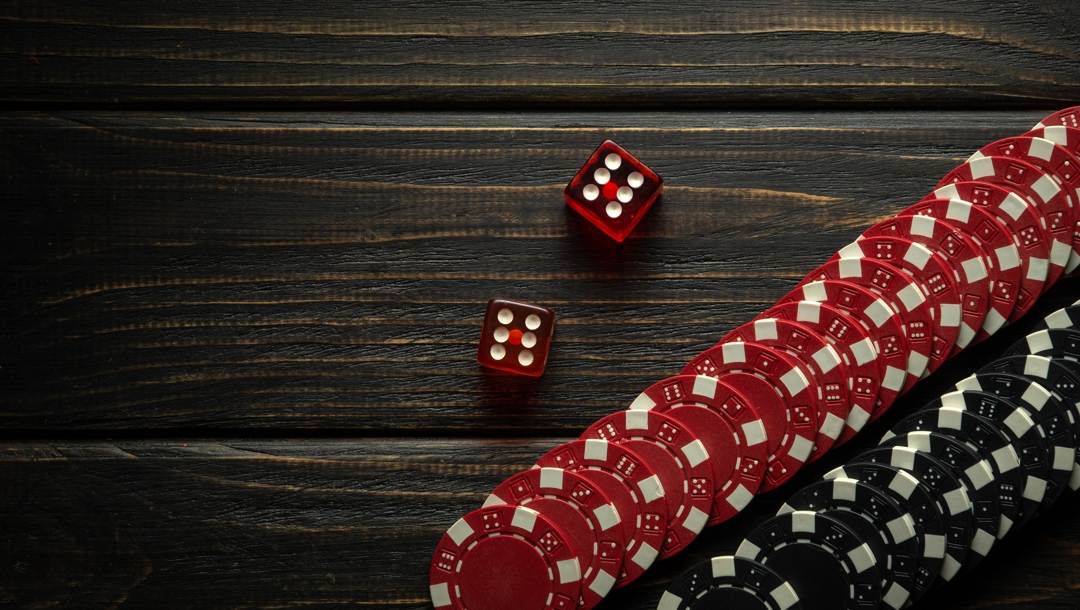Courchevel is an interesting but not particularly well-known form of poker. Discover its shared roots with Omaha and learn how to play this fascinating game.

Playing online poker can be a grind. That’s why it’s good to freshen things up now and then by learning a completely new game.
Experimenting with different poker variants can be a great way to blow off steam. But it can also help your critical thinking skills and help you to break old habits if you’re stuck in a rut. So, if you’re looking to try something a little bit different, you’re going to want to hear all about Courchevel.
What Is Courchevel?
Courchevel shares a lot of commonalities with Omaha, which is obviously very well-known in the poker community. You’ll find countless Omaha cash games and poker tournaments all over the world, both online and in brick-and-mortar card rooms.
So, if you know how to play Omaha poker, you’re well on your way to understanding the Courchevel card game.
History
Not too much is known about the origins of this game, but it’s thought to have been developed in the late 1980s. The story goes that some visitors to the luxury Courchevel ski resort wanted to play poker, but weren’t entirely familiar with the rules. So they basically just made something up.
Courchevel appeared online in 2013, but it never really took off. The famous Aviation Club de Paris was also known to spread games, which makes sense given the location of the ski resort on the border of France and Italy. However, that particular venue closed down in 2014 and went out of business a year later.
To this day, no major poker series has featured Courchevel. That seems a shame, considering that WSOP bracelets have been handed out for badugi, crazy pineapple, and even tag team events.
How To Play Courchevel
As previously mentioned, the game is based on the Omaha poker rules, so most of the fundamentals are identical. It’s possible to play Courchevel as a fixed-limit, pot-limit or no-limit game.
There are four betting rounds, with two players posting compulsory blind bets before the flop. The hand rankings are identical, plus you still need to use two cards from your hand and three from the board.
Structural Differences

There are, however, two key differences. The first is quite simple: all players receive five cards rather than four. That influences the game’s optimal strategy somewhat since it becomes easier to create a big hand. As such, the worst starting hands in Omaha are even less valuable here, while the better hands are slightly devalued.
The second difference between Courchevel and Omaha poker might blow your mind a little. While there is still a flop, turn, and river, the first three community cards are dealt completely differently. In fact, the first of the three is revealed immediately after the initial hands are dealt.
That’s right. One of the flop cards, dubbed the “flopet,” or “door card,” is revealed before any action has taken place. Again, this greatly affects your preflop decision-making process. After all, you have more information available than you would in a regular flop game like Texas hold’em or Omaha.
Flow of a Courchevel Hand
Just to really cement how things work in Courchevel, here’s a quick run-through of a hand.
Preflop
Starting with the player immediately to the left, the dealer distributes five cards to each player. They will then burn (discard) a card before turning the first community card face-up in the middle.
The player to the dealer’s left places a half-sized bet, with the next in turn posting a full-size bet. From there, the usual decisions apply: fold, call, or raise.
Flopet and Flop
Once all players have made their decision, there’s a flop. Remember, though, that you’ve already seen the flopet. So, the dealer just needs to reveal two additional cards. After the rest of the flop is dealt, the player to the dealer’s left may check or bet as usual.
Turn, River, and Showdown
After the flop betting round is complete, the dealer burns the top card in the deck before producing the fourth community card, the turn. Again, starting from the player to the left of the dealer, everyone may check or bet. Should a player bet, others have the option to raise.
A fifth community card, called the river card, is then revealed before a final round of betting takes place. If there’s still more than one player involved after the last betting round, you go to a showdown. Here, everyone reveals their hands and whoever has the best cards takes the pot.
Strategy Changes
As previously mentioned, the subtle structural differences between Omaha and Courchevel mean that you’ll need to tinker with your strategy somewhat. The usual tips to improve your Omaha game generally apply, such as looking for heavily connected, high-value cards. But you’ll need to play somewhat tighter than in Omaha.
A key factor to consider is the flopet. For example, imagine holding a marginal hand like K♥ 8♦️ 7♥ 6♦️. This is just about playable in certain Omaha spots. But if that door card is something like the 2♣, your flush and straight opportunities are greatly reduced. If it were the 8♥, on the other hand, you’d be much more inclined to enter the pot.
In short, you’ll want to tighten your ranges a little while paying extra attention to your opponent’s reactions while the cards are dealt. You may spot a valuable physical tell, such as a wry smile of disappointment, upon viewing the flopet.
Courchevel Hi-Lo

Just like Omaha, it’s possible to play Courchevel in the “eight or better” format. Courchevel hi-lo pots are split into two, with the best high hand taking half and the best qualifying low going elsewhere. A “low” is any hand worth 8-high or less.
Enjoy Omaha Alternatives at BetMGM
Courchevel would be a great way to spice up your home game, particularly if your buddies enjoy mixed games. But then, that’s also true of any less-common poker variant, including pineapple, five-card Omaha, or Irish.
If you’d like to try some of the less common online poker formats, register at BetMGM today.


